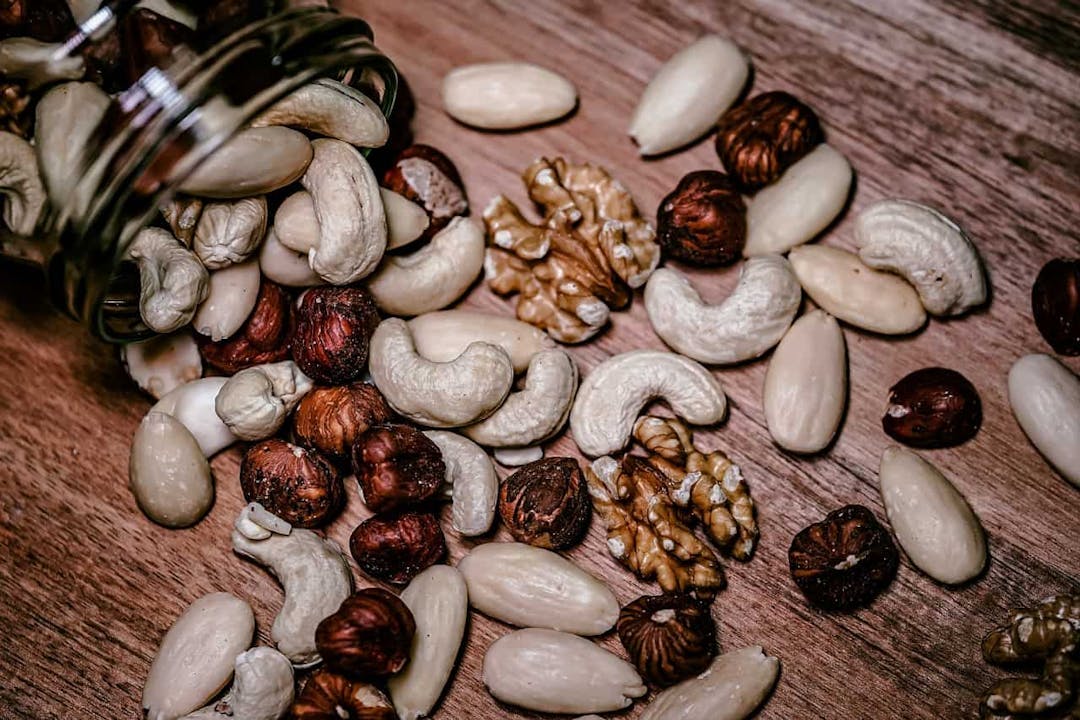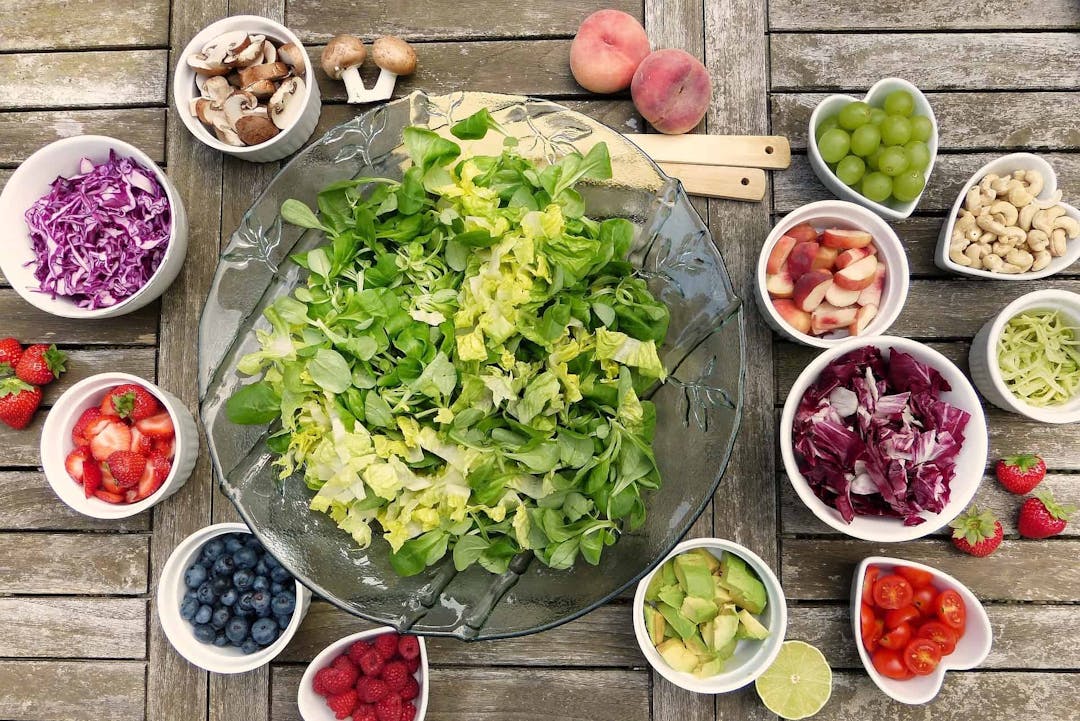


Find foods you can eat.
Emulsifier-Free Diets For Cavernomas
Published on January 19, 2023What are Cavernomas?
Cavernomas, also referred to as cerebral cavernous malformations or cavernous angiomas, are types of blood vessel malformations that occur in the brain and/or spine. These abnormal blood vessels tend to form in clusters, or lesions, and have especially thin walls prone to leaking. Although relatively rare, cavernomas may occur at any age, and some individuals have a genetic predisposition to developing them. As cavernomas grow, they can lead to dangerous complications such as seizures, hemorrhage, stroke, and other neurological problems like weakness in the limbs and blurry vision. Some individuals with cavernomas do not experience symptoms and are unaware that they even have a cavernoma. Others experience severe symptoms and dangerous complications, particularly if the lesions burst.
Currently, the only medical treatment available for cavernomas is surgery to correct blood vessel abnormalities in the brain or spine. In the near future, there may be additional treatments available, such as medications to prevent and control the growth of cavernomas. Additionally, certain dietary and lifestyle changes may help to prevent the development of new lesions.
What is an Emulsifier-Free Diet?
An emulsifier-free diet is one that excludes types of food additives, called emulsifiers, which are found in certain processed foods. Emulsifiers are added to foods in order to hold food particles together, improve food texture, and extend its shelf-life. Emulsifiers give ice cream a thicker texture, prevent oil and water from separating in salad dressings, and are used to make flavoring powders added to snack foods like salt and vinegar potato chips. While certain emulsifiers are naturally found in foods like egg yolks, others are chemically processed and added to foods. These types of chemically processed emulsifiers are required to be listed on ingredient labels of packaged foods, and include but are not limited to:
- Ammonium phosphatide
- Carboxymethylcellulose
- Carrageenan
- Dextrin
- Diacetyl tartaric acid esters (DATEM)
- Glycerol monoacetate, monolaurate, monooleate, and monostearate
- Hydroxypropyl methyl cellulose (HPMC)
- Magnesium stearate
- Maltodextrin
- Methylcellulose
- Mono and diglycerides
- Polysorbate 60, 65, and 80
- Propylene glycol esters of fatty acids (PGMs)
- Sodium caprate and carprylate
- Sodium stearolyl lactylate (SSL)
- Sorbitan monostearate
- Sucrose acetate isobutyrate
- Sucrose fatty acid ester
Foods that commonly contain chemically processed emulsifiers may include but are not limited to:
- Ice cream and frozen desserts
- Flavored yogurts
- Foods labeled as “low-fat,” “reduced fat,” or “fat-free”
- Margarine and low-fat spreads
- Baked goods
- Packaged snack foods
- Sauces, dips, and salad dressings
- Processed meats and meat alternatives
- Chocolate and candy
- Icings
- Gelatin desserts
- Coffee creamer
- Nut butters
- Spice mixes
For a full list of emulsifier ingredients, you can download the Fig app.
Which Foods are Emulsifier-Free?
Generally, unprocessed and minimally processed foods are least likely to contain chemically processed emulsifiers. Therefore, an emulsifier-free diet may include the following:
- Fruits and vegetables
- Beans and legumes
- Nuts and seeds
- Dairy products without added emulsifiers
- Dairy alternatives without added emulsifiers
- Eggs
- Grains
- Fish and seafood
- Meat and poultry
You can use the Fig app to scan a food at the grocery store and check if it likely has an emulsifier in its ingredient list.
What the Research Shows About Emulsifier-Free Diets and Cavernomas
While occasional consumption of small amounts of chemically processed emulsifiers is unlikely to cause harm, research conducted on mouse models suggests that regular consumption of chemically processed emulsifiers, particularly in large quantities, may promote inflammation of the gut lining by damaging the gut’s mucosal barrier.
At first glance, gut health and cavernomas may sound unrelated, but recent research suggests otherwise. According to research conducted on mouse models published in the journal Nature in 2018, certain bacteria in the gut microbiome, or community of microorganisms living in our gut, produce molecules called lipopolysaccharides (LPS). When the gut lining is damaged, LPS can be more easily translocated from the gut into the bloodstream, where it eventually makes its way to the brain. In the brain, LPS can then bind to a receptor, which may trigger cavernoma formation in those with a genetic susceptibility. Interestingly, in humans, cavernoma patients were found to have a distinct pro-inflammatory gut microbiome composition compared to healthy individuals, which favors LPS-producing bacteria. Additionally, according to the Alliance to Cure Cavernous Malformations, those with genetic mutations predisposing them to cavernomas who also have a compromised gut lining, tend to have more lesions.
Researchers have concluded that while genetics play a role in cavernoma formation, genetics alone are not enough for someone to develop cavernomas, and the gut microbiome appears to play a critical role. As a result, an emulsifier-free diet has been proposed as a potential dietary approach to reduce the development of new lesions.
The Pros and Cons of Following an Emulsifier-Free Diet
Following a diet free of chemically processed emulsifiers can be a very healthy way of eating, particularly because most foods that contain chemically processed emulsifiers are heavily refined and processed themselves. By eliminating these emulsifiers from your diet, it is likely that you will have to center your diet around whole, minimally processed foods. Additionally, minimally processed plant-based foods like fruits, vegetables, beans, nuts, seeds, and whole grains are rich in fiber, which encourages a healthy gut microbiome. Foods naturally high in fiber serve as nourishment for our good gut bacteria. They help to crowd out bad bacteria and promote a more diverse, healthier microbial ecosystem in the gut. While this is especially beneficial for those predisposed to cavernomas, anyone can benefit from limiting their intake of heavily processed foods containing emulsifiers.
Emulsifier-free diets pose little nutritional risk. That said, if you have trouble finding alternative options for foods you regularly consume that contain emulsifiers, it can be helpful to work with a registered dietitian to guide you in developing a nutritious, balanced diet free from chemically processed emulsifiers. You can also use the Fig app to find foods that are likely free of emulsifiers.
Helpful Tips When Beginning an Emulsifier-Free Diet
The Alliance to Cure Cavernous Malformations has an emulsifier score list posted on their website, which lists different emulsifiers and their effects on the gut, according to the available research. Each emulsifier is color coded depending on the strength of evidence to support or oppose its consumption, which can help you to determine which emulsifiers you may want to avoid, and which you don’t have to worry about.
Scanning ingredient labels for emulsifiers may seem daunting and time consuming, but the Fig app is here to help! You can customize the Fig app to help you identify foods free from emulsifiers, making grocery shopping easier and more efficient.
The Bottom Line
The link between the gut microbiome and cavernomas is well established. Following an emulsifier-free diet may be beneficial for individuals with a genetic predisposition for developing cavernomas. While more research must be conducted before making definitive claims about its efficacy, there are few downsides to eliminating emulsifiers from your diet.
 Low FODMAP Nuts and Nut Butters
Low FODMAP Nuts and Nut Butters Low FODMAP Salad: How to make an IBS-friendly salad
Low FODMAP Salad: How to make an IBS-friendly salad